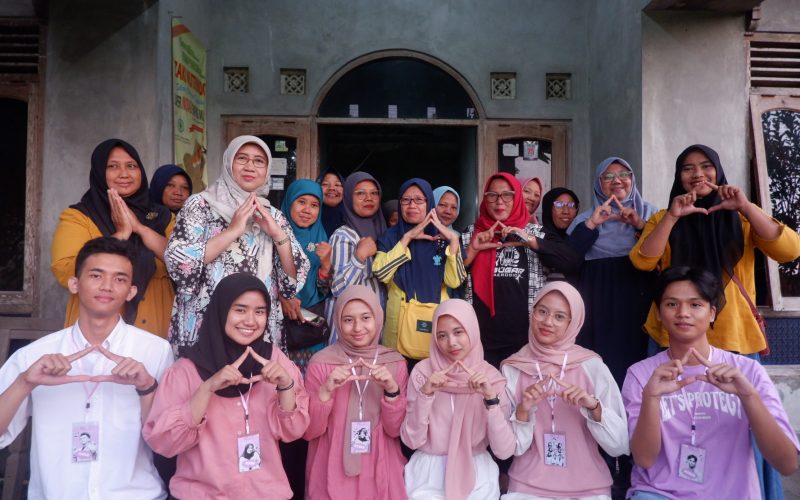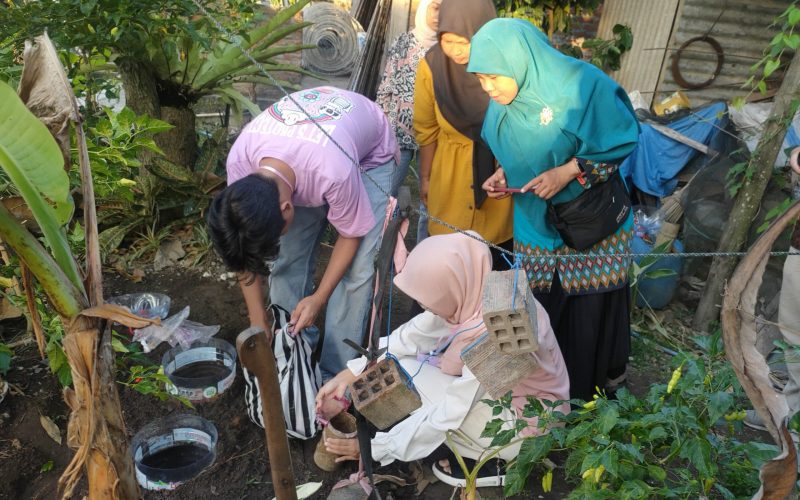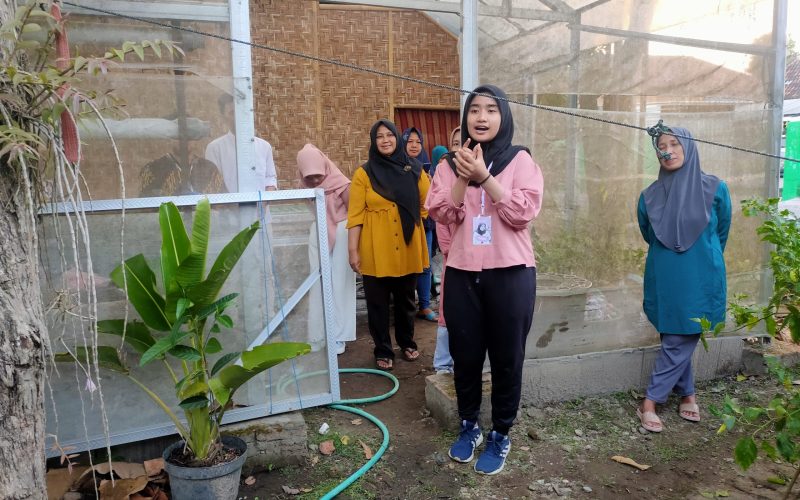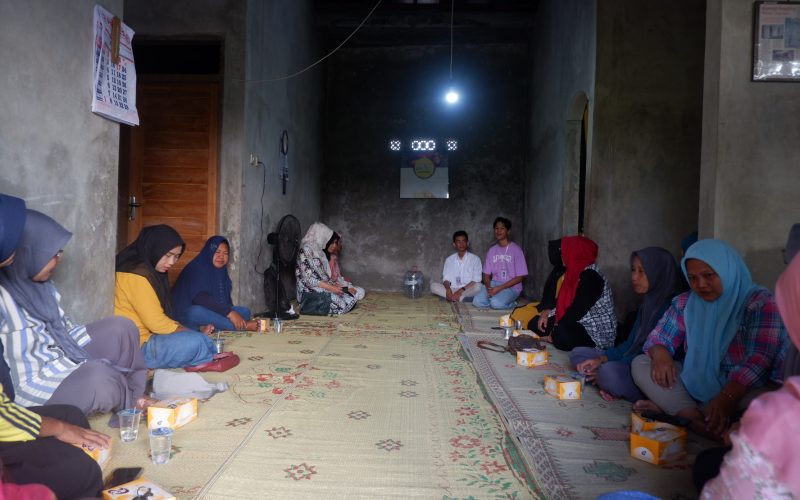In order to strengthen collaboration and the sustainability of community service programs with partner villages, the PkM-MBKM team, led by Prof. Dr. Diah Rachmawati, S.Si., M.Si., along with Hanif Fauzan Saputra, Salma Nur Majidah, Maharani Pratiwi S.A., M. Reza Hendriansah, Rima Vegi Santika, Eka Nur Oktavia, Adzkiya Aqmaliza R., and Agra Daffa Putra, conducted a socialization activity for the Merdeka Belajar Kampus Merdeka program in Kepuh Wetan, Wirokerten Village, Banguntapan Subdistrict, Bantul Regency, DIY on Thursday, 20th of June 2024, from 16:00 to 17:30. This activity was attended by members of the Amanda Women’s Farmer Group (KWT) and aimed to provide in-depth understanding and practical skills directly to the community, particularly KWT Amanda, in managing and decomposing organic waste using maggots integrated with an aquaponic system for sustainable environments.
The event was hosted by Agra Daffa as the MC, starting with an opening and followed by a speech from Prof. Dr. Diah Rachmawati, S.Si., M.Si. The subsequent activity was a general presentation on the necessary tools and materials, as well as the technical aspects of maggot waste decomposition integrated with the aquaponic system, including system installation and maintenance by M. Reza Hendriansah and Salma Nur Majidah.
The hands-on learning session was conducted in the greenhouse, beginning with the installation of the maggot waste decomposition system using used mineral water gallons that had been perforated and then planted in the ground. The gallons were first filled with organic waste and then given an adequate number of maggots before being sealed to prevent the maggots from escaping. Meanwhile, the aquaponic system used a large bucket that had been perforated and filled with water and catfish fry. These perforations were then filled with spinach and pak choy seeds that had been germinated in cups. This direct learning session attracted enthusiasm from the participants who were keen to learn more about waste management using maggots integrated with the aquaponic system. Maharani Pratiwi S.A. explained that the maintenance of maggot waste decomposition involves adding organic waste when the previous waste has been fully decomposed, and selecting waste types that are not too large and hard to avoid overwhelming the maggots. Additionally, the maintenance of the aquaponic system involves feeding the fish twice a day and changing the water every two weeks or when the water starts to smell bad.
To support the sustainability and success of this activity, weekly monitoring will be conducted. Mrs. Marwati from KWT Amanda expressed her hope for continued guidance and direction from Prof. Dr. Diah Rachmawati, S.Si., M.Si., and the students in maintaining and sustaining the program. It is hoped that this will support the empowerment of KWT Amanda in entrepreneurship and contribute to the improvement of the community’s economy, in line with the Sustainable Development Goal 8 (SDG 4 and 8). This activity also served as a means to build rapport between the community Kepuh Wetan and the PkM-MBKM team from the Faculty of Biology UGM, strengthening relationships and collaboration for a more sustainable future (SDG 17).







